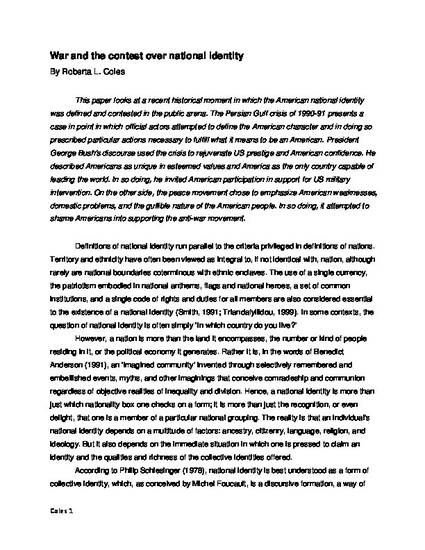
This paper looks at a recent historical moment in which the American national identity was defined and contested in the public arena. The Persian Gulf crisis of 1990-91 presents a case in point in which official actors attempted to define the American character and in doing so prescribed particular actions necessary to fulfill what it means to be an American. President George Bush’s discourse used the crisis to rejuvenate US prestige and American confidence. He described Americans as unique in esteemed values and America as the only country capable of leading the world. In so doing, he invited American participation in support for US military intervention. On the other side, the peace movement chose to emphasize American weaknesses, domestic problems, and the gullible nature of the American people. In so doing, it attempted to shame Americans into supporting the anti-war movement.
Available at: http://works.bepress.com/roberta_coles/5/

Accepted version. The Sociological Review, Vol. 50, No. 4 (November 2002): 587-609. DOI. © 2002 Blackwell. Used with permission.
The definitive version is available at www.blackwell-synergy.com.